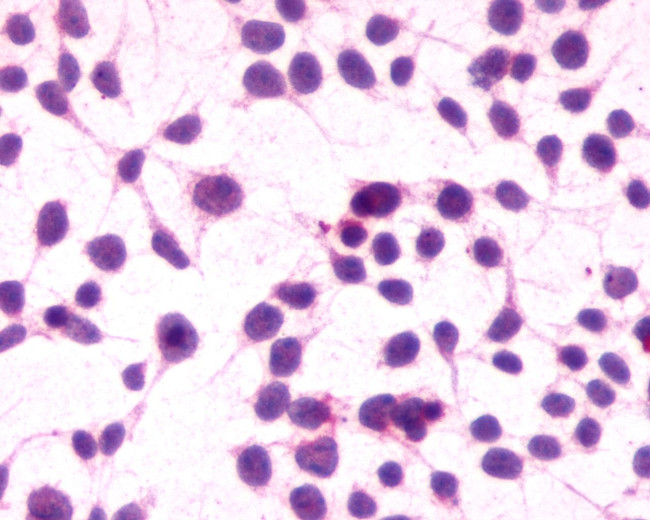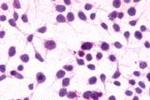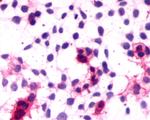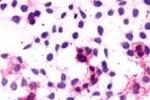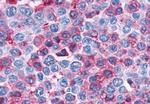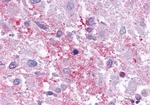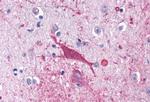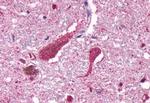Search Thermo Fisher Scientific
Invitrogen
Cannabinoid Receptor 1 Polyclonal Antibody
Product Details
PA5-33440
Species Reactivity
Host/Isotype
Class
Type
Immunogen
Conjugate
Form
Concentration
Purification
Storage buffer
Contains
Storage conditions
Shipping conditions
RRID
Product Specific Information
Percent identity with other species by BLAST analysis: Human, Chimpanzee, Gorilla, Monkey, Marmoset, Mouse, Rat, Panda, Dog, Bat, Bovine, Cat, Horse, Pig (100%) Opossum (94%).
Target Information
This gene encodes one of two cannabinoid receptors. The cannabinoids, principally delta-9-tetrahydrocannabinol and synthetic analogs, are psychoactive ingredients of marijuana. The cannabinoid receptors are members of the guanine-nucleotide-binding protein coupled receptor family, which inhibit adenylate cyclase activity in a dose-dependent, stereoselective and pertussis toxin-sensitive manner. The two receptors have been found to be involved in the cannabinoid-induced CNS effects experienced by users of marijuana. Multiple transcript variants encoding two different protein isoforms have been described for this gene.
For Research Use Only. Not for use in diagnostic procedures. Not for resale without express authorization.
References (0)
Bioinformatics
Protein Aliases: Brain-type cannabinoid receptor; CANN6; Cannabinoid receptor 1; cannabinoid receptor 1 (brain); CB-R; CB1; CB1 receptor; central cannabinoid receptor; HGNC:2159; OTTHUMP00000016839; RP1-23D17.1; striatal cannabinoid receptor type 1 protein
Gene Aliases: CANN6; CB-R; CB1; CB1A; CB1K5; CB1R; CNR; CNR1; Skr6; SKR6R
UniProt ID: (Human) P21554, (Mouse) P47746, (Rat) P20272
Entrez Gene ID: (Human) 1268, (Bovine) 100299449, (Horse) 100065681, (Dog) 481913, (Pig) 100520160, (Mouse) 12801, (Rat) 25248

Performance Guarantee
If an Invitrogen™ antibody doesn't perform as described on our website or datasheet,we'll replace the product at no cost to you, or provide you with a credit for a future purchase.*
Learn more
We're here to help
Get expert recommendations for common problems or connect directly with an on staff expert for technical assistance related to applications, equipment and general product use.
Contact tech support
